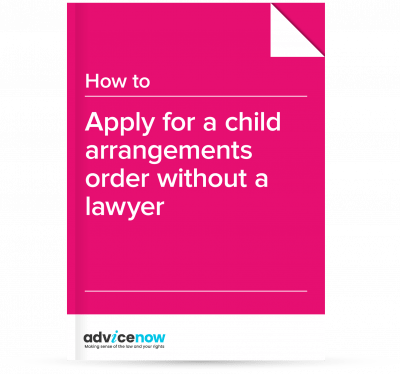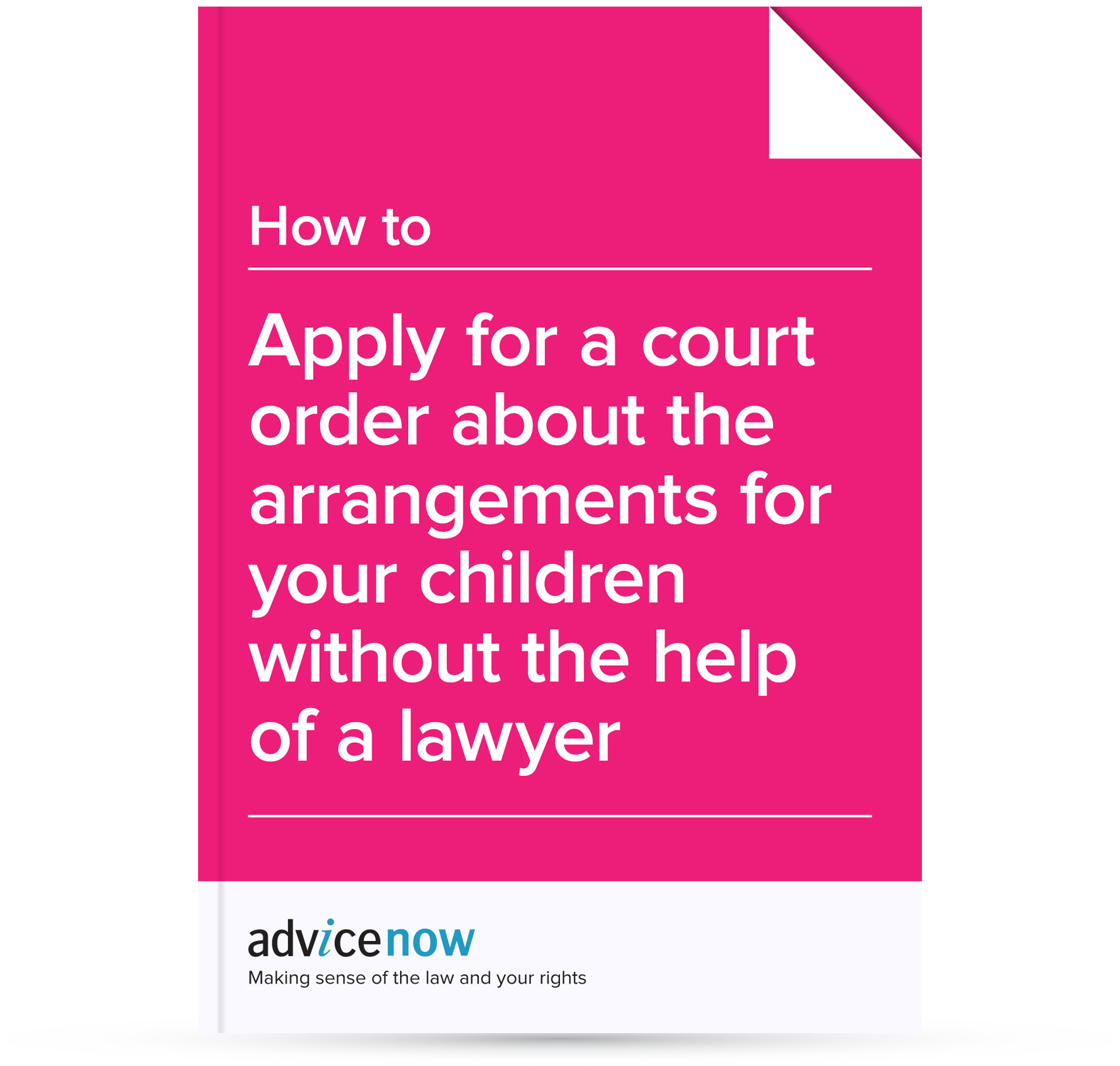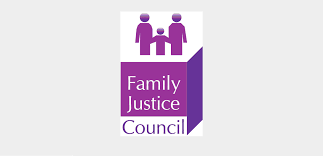How to find a family mediator
Ask friends and family for a recommendation or your solicitor if you have one. Or use the Family mediator search. It is fine to phone around, ask how much they charge and compare prices. If you follow up a recommendation check the name of the mediator on the Family Mediation Council website to be sure the person recommended is accredited. For more help and support on using family mediation, take a look at A survival guide to family mediation.
How to find legal advice
Use our Affordable Advice service to discuss the most important bits of your case. See the front page of this guide for more information.
For help finding a family lawyer a good place to start is Resolution where you can find lawyers by searching using your postcode. Resolution members must commit to helping you work out your legal problem in a non-confrontational way. A green tick next to the lawyer’s name tells you that they offer legal aid.
You can also search for a specialist lawyer near you who has been accredited by the Law Society. This means they have a significant amount of experience and expertise and have passed a Law Society assessment - go to Law Society Find a solicitor page. You can also find a family lawyer via the GOV.UK website.
The Child Law Advice service provide free advice on all areas of English child and family law from the Child Law Advice Line on 0300 330 5480 Monday to Friday 8am - 6pm.
Rights of Women offers free, confidential legal advice for women in England and Wales on family law matters (for example, about domestic violence and abuse, divorce, cohabitation, finances and property on relationship breakdown, parental responsibility and arrangements for children and lesbian parenting).
For women in England and Wales, call: 020 7251 6577. Line open Tuesday to Thursday, 7pm to 9pm, Fridays 12pm to 2pm (closed on public holidays).
For women in London, call: 020 7608 1137. Line open: Mondays 10am - 12pm and 2pm to 4pm, Tuesdays 2pm - 4pm, Wednesdays 2pm - 4pm, Thursdays 10am - 12pm and 2pm to 4pm (closed on public holidays).
RCJ Advice family services include free legal advice delivered daily through legal appointments and FLOWS, a national domestic abuse legal service linking women to legal aid for family law. The service is currently working remotely and offering appointments by phone and zoom. To book an appointment please complete an Assessment Form on their website.
Another way to get legal advice is to speak to a barrister who is qualified to represent members of the public directly (without a solicitor being involved). There are limits on what a barrister can do outside of representation at court but it is often a cheaper option if you just want to get some advice rather than have a solicitor to negotiate on your behalf. The details of appropriately qualified barristers and an explanation of the way the system works can be found at Direct Access Portal. Don’t be afraid to phone around to compare prices or see if you can find someone who will give you the first appointment for free. Try and get organised before you make any calls, so that you can answer questions about your case clearly.
Help at court
Court staff may be able to explain court procedures and help you find a court form. They are not able to give you legal advice.
Support Through Court supports people going through the court process without a lawyer. Volunteers offer a free and confidential service at some court buildings. You can look at their website to see if they have an office at your local court. The volunteers aim to help you manage your own case yourself. They cannot give legal advice or act on your behalf, but can offer practical help such as going to your hearing with you and supporting you with your forms. They can also help you if your hearing is by video or phone, by talking you through the process and sometimes joining the hearing too. They run a free national helpline 03000 810 006, open Monday to Friday 10.30am - 3.30pm. This is a good place to start for information on what they can do to help you.
Child contact centres
Child contact centres are neutral places where children of separated families can spend time with the parent they don’t live with day to day and sometimes other family members, in a comfortable and safe environment. For more information, see National Association of Child Contact Centres
Domestic violence and abuse
Always dial 999 in an emergency.
For support or to discuss your options you can call the National Domestic Violence Helpline on 0808 2000 247 or in Wales, Live Fear Free on 0808 80 10 800. Both helplines are open 24 hours a day.
Both help lines are for anyone who is experiencing, or has experienced domestic abuse, or for anyone who is worried about domestic abuse happening to a friend, family member or colleague. It is free, confidential and the number will not show up on a BT telephone bill.
If you are a man and you or your children are affected by domestic violence or abuse you can contact the Men’s Advice Line on 0808 801 0327.
The National Centre for Domestic Violence provides a free, emergency injunction service to survivors of domestic violence regardless of their financial circumstances, race, gender or sexual orientation. You can contact them on: 0800 970 2070. Alternatively you can text: NCDV to 60777 and they will call you back.
Galop runs a national helpline for lesbian, gay, bisexual and trans people experiencing domestic abuse. You can contact them on 0800 999 5428.
You can find more information and support from:
Refuge
Women’s Aid
Welsh Women’s Aid
Parenting help and support
Cafcass / Cafcass Cymru (Children and Family Court Advisory and Support Service) work with children and their families, and then advise the courts on what they consider to be in the best interests of individual children. They have lots free and useful information on their website for parents and children.
Gingerbread provides expert advice, practical support and other help for single parents on their website.
If you can’t find what you need on their website you can call their Single Parent Helpline 0808 802 0925
Mondays: 10am to 6pm, Tuesdays/Thursdays/Fridays: 10am to 4pm, Wednesdays: 10am-1pm and 5pm-7pm. The helpline is closed on all public holidays.
OnlyMums offers online support to parents going through divorce or separation. The site has a free web chat facility and email exchange service. OnlyMums and OnlyDads run the Family Law Panel, which links you up to specialist family law solicitors, barristers or mediators near you for a free initial conversation either on the phone or by email to help you work out how to go forward.
OnlyDads offers online support to parents going through divorce or separation. The site has a free web chat facility and email exchange service. OnlyMums and OnlyDads run the Family Law Panel, which links you up to specialist family law solicitors, barristers or mediators near you for a free initial conversation either on the phone or by email to help you work out how to go forward.
Relate offers emotional and practical support for people experiencing relationship problems. They have lots of information on a range of problems that can arise in relationships and families.
MATCH - mothers apart from their children is a charity that offers non-judgemental support and information to mothers apart from their children in a wide variety of circumstances - enquiries@matchmothers.org.
Helpline: 0800 689 4104 9am- 1pm and 7pm-9.30pm, Monday - Friday.
Family lives is a national charity providing help and support in all aspects of family life. Their helpline can give information, advice, guidance and support on any aspect of parenting and family life. Family Helpline: 0808 800 2222 Monday to Friday 9am-9pm, Saturday and Sunday 10am - 3pm.
Help for grandparents seeking contact
Kinship is a charity supporting grandparents and other family members or family friends involved in caring for children when their parents can’t. They also have a useful section if you are a grandparent who is losing or has lost touch with your grandchildren.

 Read the standard version of the guide for free online.
Read the standard version of the guide for free online. If you are going through a break-up or you have been through one recently, you are probably going through a very stressful time. It's hard being a parent. You may be feeling that you can't cope or you want it all to go away. Most people have days when they feel like they want to go back to being a child themselves. This makes it hard to make any decisions. Be kind to yourself.
If you are going through a break-up or you have been through one recently, you are probably going through a very stressful time. It's hard being a parent. You may be feeling that you can't cope or you want it all to go away. Most people have days when they feel like they want to go back to being a child themselves. This makes it hard to make any decisions. Be kind to yourself. The law explains what a court needs to take into account when it makes a decision about your child. The court will consider your child’s welfare above all else. This is about trying to decide, sometimes in difficult circumstances, what is in your child’s best interests. It means putting what your child needs first, before what each parent may want or need.
The law explains what a court needs to take into account when it makes a decision about your child. The court will consider your child’s welfare above all else. This is about trying to decide, sometimes in difficult circumstances, what is in your child’s best interests. It means putting what your child needs first, before what each parent may want or need. 
 (If you have worked out you only need to do the C100 form you can
(If you have worked out you only need to do the C100 form you can  In this section we explain what a final hearing is, what happens in it and how to get ready for it.
In this section we explain what a final hearing is, what happens in it and how to get ready for it.

